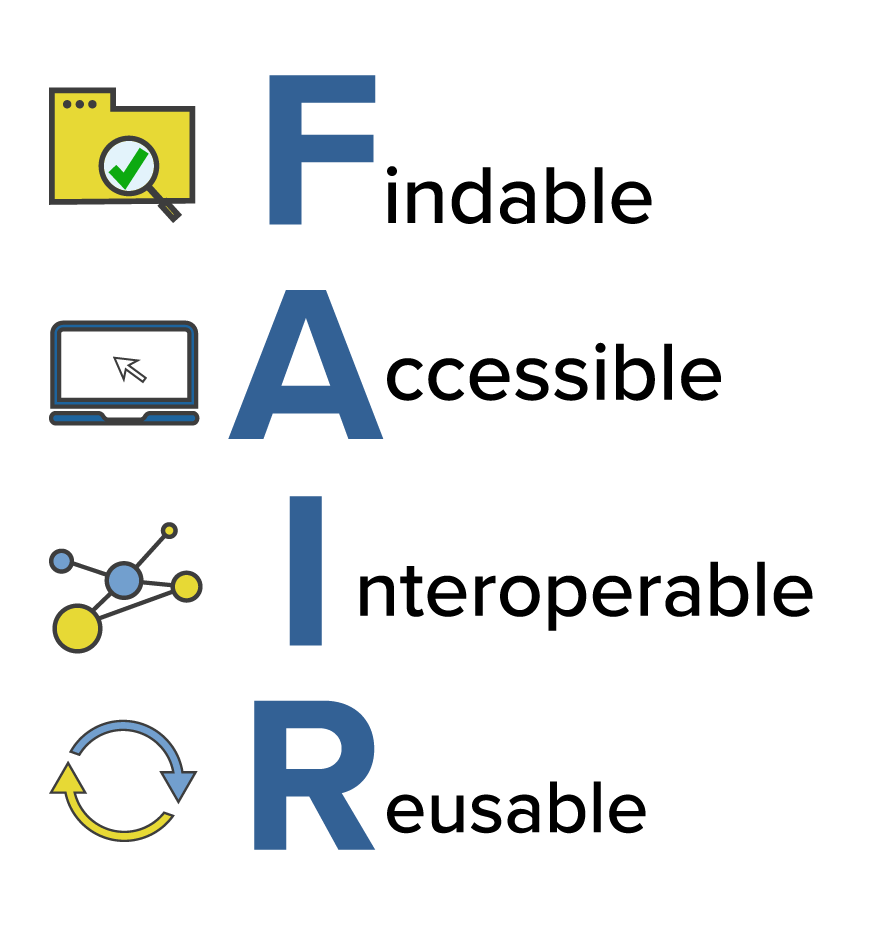🌟 Introduction to Conda & FAIR Data Workshop
🗓️ Date & Time
- Sunday, Sep 28, 2025
- 9:00 am - 1:00 pm
📍 Venue
- Building 1, Level 2, Multi-purpose Room (MPR) (Desert Side)
👥 Organizers
Didier Barradas Bautista
Visualization Core Laboratory
didier.barradasbautista@kaust.edu.sa
Julien Gorenflot
Research Data Management
julien.gorenflot@kaust.edu.sa
Register
Workshop Materials
🧪 How to Prepare
- Read: GO FAIR Principles
💼 Bring With You
- Laptop with internet connection
- NOMAD ID account
- Curiosity and questions!
🎯 Workshop Goals
🔹 Conda Workshop Goals:
- 🧰 Learn to manage packages and environments with Conda.
- 🔁 Build reproducible workflows for data science projects.
- 🌐 Use Conda across multiple programming languages.
- 📦 Share project-specific environments for collaboration.
- 📊 Strengthen core data science skills at KAUST and in KSA.
🔹 Learn - on an example: NOMAD - what FAIR data is, and tools that enable to create FAIR data, or convert data to FAIR data:
- 🔍 Findable – Metadata, indexing, and persistent identifiers
- 🗂️ Accessible – Open formats, licensing, and repositories
- 🔗 Interoperable – Standards, vocabularies, and APIs
- 🔁 Reusable – Documentation, provenance, and quality
👨🔬 Who Should Attend?
- Researchers, data managers, and graduate students
- Anyone working with scientific data
- No prior experience required!
📚 What You'll Learn
🧠 From Conda
- 🧰 Create and manage environments
- 📦 Install and update packages
- 🔁 Ensure reproducibility
- 🌐 Work across languages
- 📤 Share setups with others
🧠 From FAIR/NOMAD
- 🔍 Create a dataset with persistent identifiers
- 🗂️ Share a dataset with the community while giving proper credit to contributors (including you)
- 🔗 Conversion of data into a standard community-used format
- 🔁 Retrieve data and information from a discipline repository. Use and design of Electronic Laboratory Notebooks (ELNs) for proper documentation
Agenda
| Time | Topic |
|---|---|
| 09:00 | Introduction to Conda |
| 09:30 | Working with Environments |
| 10:00 | Using Packages and Channels |
| 10:30 | Sharing Environments |
| 11:00 | Introduction to FAIR data and NOMAD |
| 11:20 | Exploring NOMAD entries, use NOMAD data |
| 11:40 | Upload data and create datasets |
| 12:00 | FAIR Data automation and examples |
